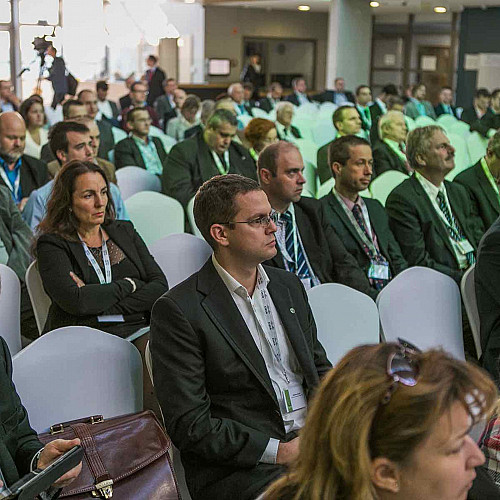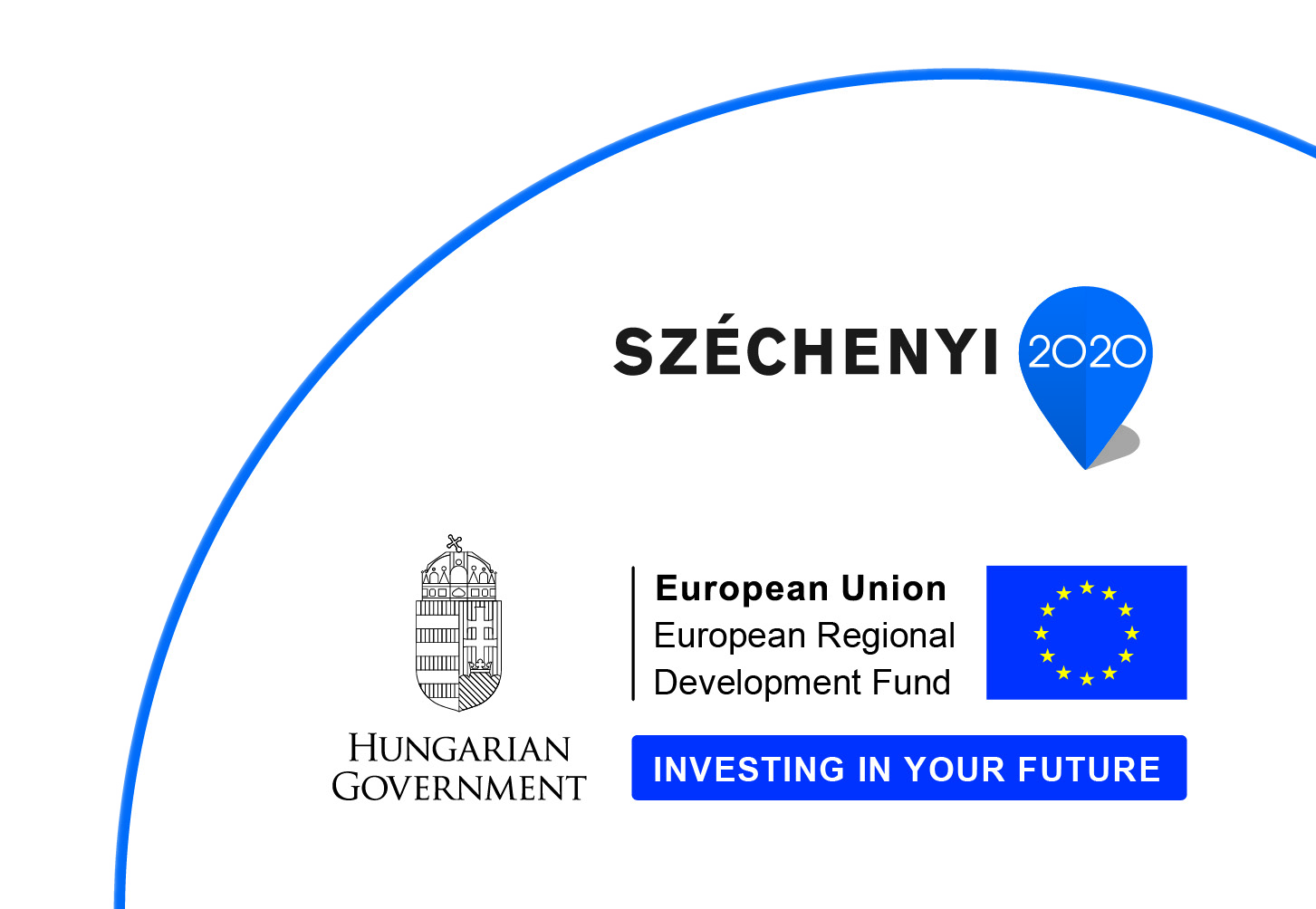SmartCity developments are unstoppable
Zsolt Borkai, Mayor of Győr; Ákos Kara, State Secretary for Infocommunication and Consumer Protection; and Dr. Péter Földesi, Rector of Széchenyi István University opened the event with his greeting speech, and the main characters of the morning of the first day were energy policy trends.
Dr. Lenner Áron, deputy state secretary for agriculture, says the technical development of recent years is a great opportunity for Hungary to establish its energy independence in the long term and to replace the current 80% import of crude oil. To this end, one of the EU's first comprehensive electromobilisation strategies, Jedlik Ányos Terv, was established. The aim of the program is to actually create the basics of electrical mobility - both at the legal and infrastructure level. The program would stimulate the propagation of electric vehicles such as the reduction of the VAT content, or even the total abolition, of road, parking and recoupment charges or the use of bus buses.
Robert McNamara, co-chair of TechUK, told the audience about smart networking in the United Kingdom. In his presentation, he highlighted that the organization aims to deliver smart meters to all British households by 2020, enabling optimization of consumption, which will ultimately achieve significant energy savings. It is estimated that in the United Kingdom £ 19 billion would be cheaper to develop smart networks than the current renewal of the current traditional networks.
Zsolt Bertalan, president of the Okos Future Innovation Cluster, emphasized that Hungary follows international trends in the development of smart cities. The expert expressed hope that in the Central and Eastern European region Budapest could play a prominent role in smart network projects. For this, the Smart Future Innovation Cluster offers a continuous professional forum for both economic and government players.
Dr. Péter Grabner spoke of the new price control cycle starting in 2017, representing the Hungarian Energy and Utilities Regime, and highlighted that a number of customer types, such as prepaid customers, late and systematic arrears, application of new technologies in energy.
For the rest of the day, our future environment was one of the main topics in which Dr. Gabriella Szépszó, the researcher of the National Meteorological Service, emphasized the importance of preparing for climate change, as by 2050 by about 1-3 ° C until the end of the century The average annual temperature in Hungary is 4-5 C °. According to Dr. Miklós Kertész, senior research fellow of the Hungarian Academy of Sciences, the big challenges of the future will be connected to water - fewer drinking water will be available, but more floods can be expected.
Dr. Zoltán Varga, lecturer at Széchenyi István University, emphasized that challenges in e-mobility should be solved in different time horizons. According to the projections presented by the specialist, electric current is most medium-term solution, but in the long run the hydrogen fuel cell can be the future mobility solution.
In the representation of Ányos Klaszter Jedlik, Tamás Vörös introduced further details of the Jedlik Ányos Plan, including the concepts of the development of server infrastructure.
Péter Gyenes, senior manager of PwC, gave an insight into present and future trends, highlighting the role of sharing ecomony and M2M in the development of smart cities.
According to Sándor Szappanos, Managing Director of E.ON Energiatermelő Kft., It is a major challenge for every service provider to change the role of consumers as they become productive or partly productive in the field of energy. The expert recently described the smart city projects implemented in Győr with E.ON, such as City Index, City Service, Smart Public Lighting and Building Energy Management.
János Prikk, the IBM industry expert, János Prikk emphasized that we are living in a new industrial revolution in which people can become sensors through their clever tools that can greatly help the development of smart cities. According to a specialist, the recognition and exploitation of synergies - such as an intelligent routing system - will stop plugs and the emergency response may be faster.
Eszter Kardos, Product Manager for IP Systems, has delivered a lecture on smart measurement that provides more accurate measurements and optimization for distributors, extra profits for dealers, and customizability and controllability for consumers.
By Cisco, József Fulajár presented the communication architecture of smart cities with the help of the company's solutions
2016.10.27

